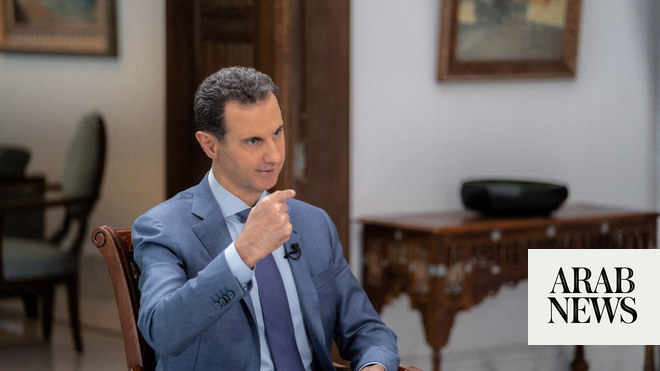
The meeting could mark a turning point in Turkish opposition to Syrian President Bashar Assad’s handling of the country’s eight-year civil war
ANKARA: The heads of Turkish and Syrian intelligence on Monday held their first official talks in years, with Damascus calling for Ankara to immediately withdraw its forces from Syrian territories.
Experts believe the “positive” meeting, which took place on the sidelines of peace negotiations in Moscow, could mark a turning point in Turkish opposition to Syrian President Bashar Assad’s handling of the country’s eight-year civil war and open the door to cooperation against common targets.
Michael Tanchum, a senior fellow for the Austrian Institute for European and Security Policy, said Turkey’s acknowledgement of the talks hinted at the possibility of future coordinated action by Ankara and the Assad regime.
“Their joint action might be against the Syrian Kurdish YPG militia, as both Ankara and Damascus share a common interest in weakening the group’s power,” he told Arab News.
During their meeting in the Russian capital, the Turkish and Syrian intelligence chiefs reportedly discussed the cease-fire in the opposition-controlled Idlib province.
Syrian news agency SANA also said that Syria’s head of intelligence had reminded his Turkish counterpart of the importance of full adherence to Syrian sovereignty as well as to its independence and territorial integrity, calling on Turkey to immediately withdraw its forces from Syrian territories.
In December 2017, Turkish President Recep Tayyip Erdogan called Assad “a terrorist who has carried out state terrorism,” saying that it would be impossible for Syrian peace efforts to continue while he stayed in power.
However, after the withdrawal of US forces from northeastern Syria and the safe zone deal brokered with Turkey last year, Syrian regime troops and Russian military were sent to the territories vacated by the Americans to remove the YPG from the border area.
Assad aims to take back full control of Idlib where Turkey had committed to helping evacuate the region of rebels and their heavy weaponry.
Sources in Ankara suggest that Turkey might give some concessions in Idlib in exchange for more Russian support for its stance on the conflict in Libya.
Aydin Sezer, an Ankara-based Russia and Middle East analyst, told Arab News the fact that such high-level talks had taken place in Moscow was a positive move given the past animosity between Syria and Turkey.
“It will contribute to overcome the deadlock in Syria which Turkey is also trapped in. These talks also meant to hand over the responsibility to deal with the YPG to the Assad government, as the latter is believed to influence the local tribes against the YPG,” he said.
Sezer added that the meeting was also aimed at highlighting to the Turkish public a new phase in relations with Syria. “It is the result of long-time pressure from Russian President Vladimir Putin who repeatedly reminded of the Adana memorandum between Turkey and Syria.”
Since last year, Putin has been pushing for Ankara to restore ties with Damascus on the basis of the 1998 Adana accord which put down a framework for security cooperation between the two countries to remove Kurdistan Workers’ Party (PKK) militants, who have waged a decades-long insurgency against the Turkish state, from the Syrian border. Ankara considers the YPG an extension of the PKK.
The Adana protocol, that was signed by then-presidents Suleyman Demirel of Turkey and Syria’s Hafez Assad, is still in effect.
Erdogan admitted in February last year that the two countries were maintaining low-level dialogue through their intelligence agencies, although the meetings were never disclosed to the media.
The first low-level get-together was held in 2018 during cease-fire negotiations for Idlib.
Turkey’s Foreign Minister Mevlut Cavusoglu had also announced that Turkey would consider working with Assad if he won a democratic election.












